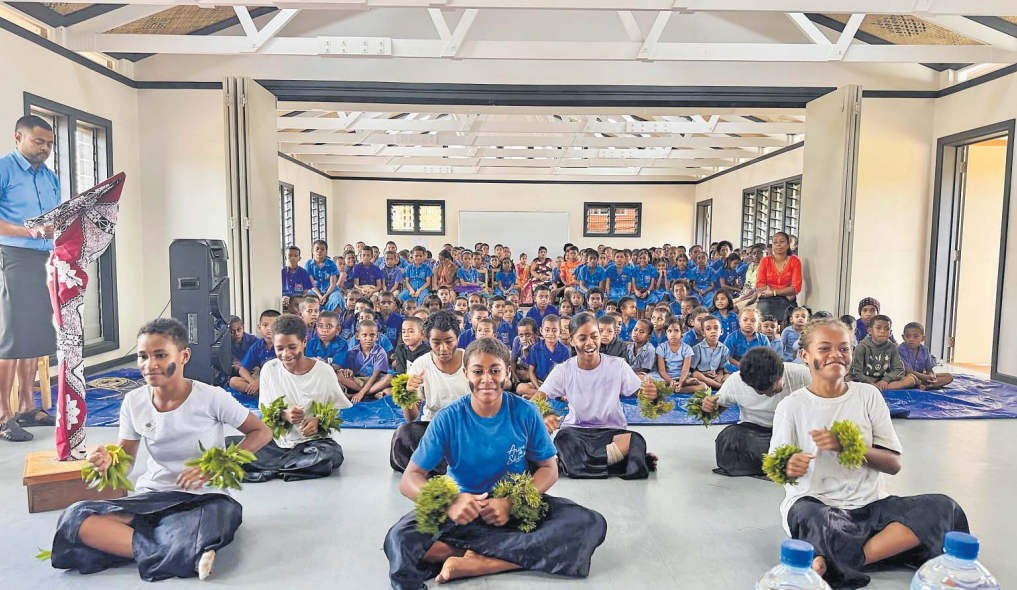In reflecting on the renewed and elevated Vuvale Partnership signed between Prime Minister Sitiveni Rabuka and Prime Minister Anthony Albanese in Australia last year, I am reminded of the strong foundation it is built on – mutual trust, respect, and a shared commitment to a peaceful and prosperous region.
Over the past year, it has become increasingly clear that this Partnership is not just about words, but about tangible action.
Together, we are working to improve the lives of Fijians in critical areas such as healthcare, education, climate resilience, gender equality, and social inclusion.
Education stands as the cornerstone of any thriving society. It equips individuals with the knowledge and skills necessary to drive economic growth, foster innovation, and promote social cohesion. Across the Pacific,
Australia is investing heavily in strengthening education outcomes for all school students. Through our Vuvale Partnership, we are committed to working together with Fiji to improve educational outcomes, including through a focus on school infrastructure, teacher training, literacy and numeracy, and inclusive education.
Tropical Cyclone (TC) Yasa made landfall in Vanua Levu in December 2020. It was a category 5 cyclone; the strongest tropical cyclone to make landfall in Fiji since TC Winston in 2016, and the fourth most intense cyclone on record in the Southern Pacific Basin at that time.
Six weeks later, TC Ana hit Fiji bringing intense rainfall and extensive flooding, and compounding the damage done by TC Yasa.
Many schools in Vanua Levu sustained heavy damage, and students attending these schools had to use temporary learning spaces such as tents, community halls, and dormitories.
When Fiji needed our help to get these children back to school, Australia put in place the Cyclone Recovery Program, which focused on school infrastructure and how we could help Fiji to recover from the impact of these cyclones.
From conducting the initial damage assessments to constructing the new classrooms and school facilities, it has been a long but transformative journey.
Earlier this year, I had the pleasure of joining Prime Minister Rabuka, Deputy Prime Minister Prasad, and Minister for Education Radrodro to attend the opening ceremonies for five of the nine schools built with Australian support.
Another two schools were officially opened late last year, and the final two schools were commissioned this week.
This marks the successful completion of the nine schools reconstructed through our Cyclone Recovery Program, valued at $F33.2 million.
The rebuilt schools are climate-resilient and disability inclusive, with solar power and rainwater tanks.
They have been designed and constructed to withstand category 5 tropical cyclones, providing high quality centres of learning for students and teachers, and safe havens during natural disasters for surrounding communities.
Through this program, we have reconstructed 25 classrooms, 15 ablution blocks, six administration buildings, six dormitories, three dining halls, 16 staff houses, seven canteens and many connecting walkways.
While I am Australia’s High Commissioner, I am also a father.
I have spent many days at my son and daughter’s schools, and I know how important education has been for their success.
Since visiting Vanua Levu earlier this year, I have also reflected on the transformation I saw at Dreketi Primary School.
From the tents in which the students had endured three years of hardship, into the new school buildings where these students now safely continue their learning journey.
Keeping the economic benefits in Fiji has been at the heart of the Program.
We have utilised local labour and locally sourced materials for all the construction.
Contractors were encouraged to employ local community members and provide them with relevant training.
Some of these workers have since been employed on other building projects.
Over the life of the Program, 342 Fijian workers were employed, with 129 recruited directly from the school communities.
This has resulted in $F1.2 million in wages being paid to local community members.
It was important to me that we also considered ways to empower women from Vanua Levu in the construction of the schools.
Our team worked closely with the contractors to generate opportunities for local women: from supplying food to workers, to producing traditionally woven mats for the classrooms.
Through our commitment to procure locally, women residing near the school communities earned approximately $F250,000.
While these nine schools are now complete, Australia remains committed to further supporting education infrastructure in Fiji.
In June this year, I formally launched Australia’s new Fiji Social Infrastructure Program alongside Deputy Prime Minister Prasad and Minister Radrodro.
This Program will build on the lessons we have learned through the reconstruction of schools in Vanua Levu.
We will continue to work as vuvale to deliver quality, inclusive and climate resilient school and health infrastructure, with an initial focus on schools along the Suva-Nausori corridor.
To the teachers, parents, students and communities from all across Vanua Levu, it has been an honour for us to work with you over the last three years. It has been one of our most transformational projects.
- Ewen McDonald is the Australian High Commissioner to Fiji. The views expressed by herein are his and not necessarily shared by this newspaper.



